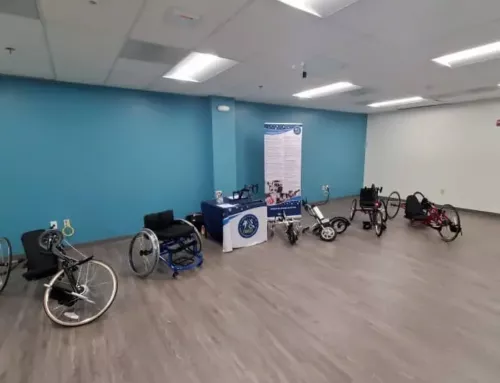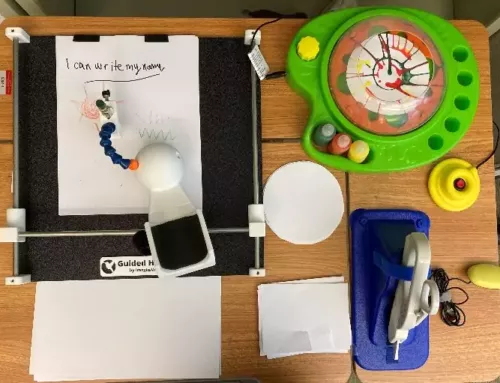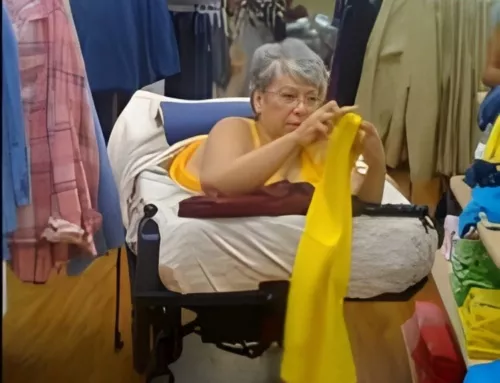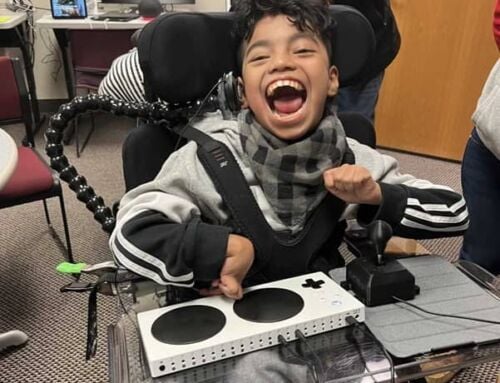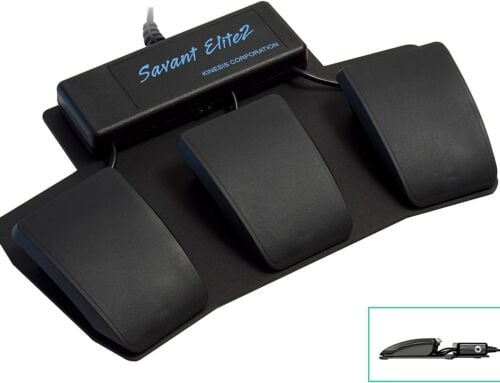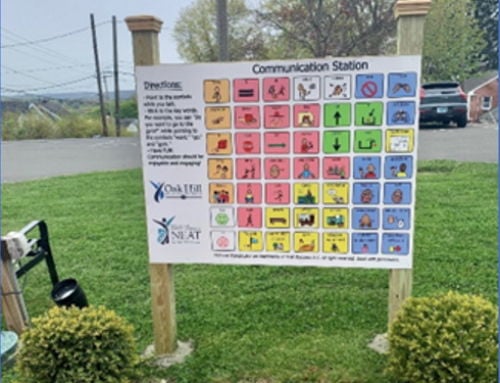AT and Autism Awareness

In honor of World Autism Awareness Day, AT3 Center celebrates James, a young man with autism in Oklahoma, and his progress with technology for communication. #CelebrateDifferences #WAAD

Autism Spectrum Disorder is a developmental condition that typically appears in early childhood and can impact social skills, communication, relationships, and self-regulation (though every person is different). According to the Autism Society, autism is lifelong and affects all genders, ethnic, and socioeconomic groups, but boys are four times more often diagnosed. In the US, 1 in 44 children is diagnosed with autism.
James experiences complex communication needs. Not all persons with autism need augmentative and alternative communication (AAC) supports, but for those who do, speech-generating devices are a powerful tool for expressive communication. “Not every autistic person can talk, but we all have important things to say,” reminds the Autism Self-Advocacy Network.
At Moore Autism Center, a collaborative partner with Oklahoma ABLE Tech (Oklahoma’s AT Act Program), James received a demonstration of Proloquo2Go on an iPad. The software allows James to choose symbols and/or words to create audible messages (or trigger recordings). AAC devices, such as Proloquo2Go, provide users a choice for their synthetic voice, and children’s voices are available.
Every State and Territory AT Act Program has a short-term device loan program stocked with tools for AAC. Not every device is right for every child. The equipment is best trialed under the direction of a trained speech-language pathologist. The equipment is often costly, and insurance will not approve funding a device unless there is documented proof the person can learn to use it.
Yet to do so, families need access to equipment!
AT Act Programs support families and their therapists throughout the states and territories to see and try a range of devices. Device loans allow for documenting progress with AAC, ultimately helping children like James tell their own stories.
Following the demonstration and a full augmentative and alternative communication evaluation, James’s family borrowed an iPad with Proloquo2Go from ABLE Tech to use during his therapy sessions, at home, and at school. James improved his efficiency with the device in all his environments.
Oklahoma ABLE Tech was able to assist James, his family, and speech-language pathologist in acquiring the iPad, app, and case through insurance. James now has his own device. Now he can make food and drink choices and let teachers know when he needs a break.
According to the Autism Society, “While there is currently no known single cause of Autism, early diagnosis helps a person receive resources that can support the choices and opportunities needed to live fully.” Oklahoma ABLE Tech is delighted to play such an important role.
Learn more:
Autism Society
Autism Self-Advocacy Network
Speech/Communication Assistive Technology from the AT3 Center
Monthly Blog Digest
Search the blog
State AT Program Blogs
California
Florida
Indiana
Kentucky
Louisiana
Maryland
Massachusetts
Michigan
Montana
North Carolina
North Dakota
Utah
State AT Program Blogs
The AT3 Center, the Association of AT Act Programs (ATAP), and the Administration on Community Living (ACL) make no endorsement, representation, or warranty expressed or implied for any product, device, or information set forth in this blog. The AT3 Center, ATAP, and ACL have not examined, reviewed, or tested any product or device hereto referred.



